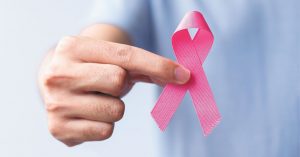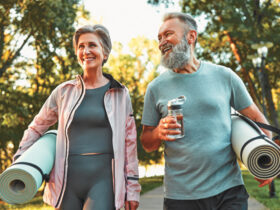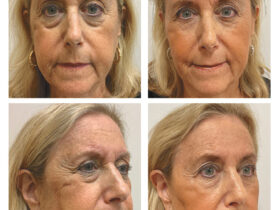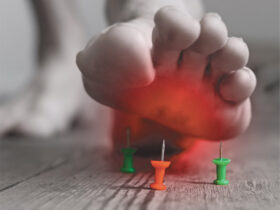 October is breast cancer awareness month and I think by now we are all pretty award of the staggering statistics that tell us that 1 in every 8 women in the United States will be diagnosed with breast cancer before the age of 65. But did you know that men can also have breast cancer?
October is breast cancer awareness month and I think by now we are all pretty award of the staggering statistics that tell us that 1 in every 8 women in the United States will be diagnosed with breast cancer before the age of 65. But did you know that men can also have breast cancer?
Although it is rare (compared to the number women with breast cancer), men can also develop cancer in their breast tissue. It is most common in older men, but can develop at any age. Those diagnosed in the early stages have a very good chance of recovery after undergoing necessary treatment. The treatments include: surgery to remove the tumor, chemotherapy, and/or radiation therapy.
Symptoms of breast cancer
The symptoms that men exhibit are the same as those of women. They include:
• A lump in the breast tissue
• Dimpling, puckering, redness of the skin on the breast or nipple
• Nipple discharge
• Inverted nipple
• Breast pain
Male breasts
All of us are born with breast tissue. This tissue consists glands, ducts, and fat. Until puberty, boys and girls have about the same breast make up. At puberty, however, girls begin to produce female hormones that cause their breasts to grow and develop. They develop lobules at the end of their ducts that produce milk and so forth. Boys, however, have very low levels of female hormones and the breast tissue doesn’t grow or change as much. They have the same ducts, but generally develop many lobules. Because they have less breast tissue, it is less common to develop cancer in this area.
Types of cancer in men
There are two main types of cancer with which a man may be diagnosed. The first is ductal carcinoma which begins in the milk ducts. The second is lobular carcinoma which begins in the milk-producing glands, called lobules. Other types of breast cancer in men are extremely rare but include inflammatory breast cancer and Paget’s disease, a cancer of the nipple.
Risk factors
The CDC website on cancer in men lists the following as risk factors:
• Getting older. The risk for breast cancer increases with age. Most breast cancers are found after age 50.
• Genetic mutations. Inherited changes (mutations) in certain genes, such as BRCA1 and BRCA2, increase breast cancer risk.
• Family history of breast cancer. A man’s risk for breast cancer is higher if a close family member has had breast cancer.
• Radiation therapy treatment. Men who had radiation therapy to the chest have a higher risk of getting breast cancer.
• Hormone therapy treatment. Drugs containing estrogen (a hormone that helps develop and maintain female sex characteristics), which were used to treat prostate cancer in the past, increase men’s breast cancer risk.
• Klinefelter syndrome. Klinefelter syndrome is a rare genetic condition in which a male has an extra X chromosome. This can lead to the body making higher levels of estrogen and lower levels of androgens (hormones that help develop and maintain male sex characteristics).
• Certain conditions that affect the testicles. Injury to, swelling in, or surgery to remove the testicles can increase breast cancer risk.
• Liver disease. Cirrhosis (scarring) of the liver can lower androgen levels and raise estrogen levels in men, increasing the risk of breast cancer.
• Overweight and obesity. Older men who are overweight or have obesity have a higher risk of getting breast cancer than men at a normal weight.
Reducing risk
Both men and women can reduce their risk of cancer by maintaining a healthy weight, eating a healthy diet, and getting regular exercise. If anyone in your family has had breast cancer, or is anyone in the family has a known BRCA1 or BRCA2 mutation, as mentioned above, he should give this information to his doctor. These mutations can increase greatly the risk of not only breast cancer, but also prostate and pancreatic cancers.
If you or a loved one is going though cancer treatment and could use a bit of extra help at home, you may be interested in the home care services provided at The Key. Whether you need respite care, a little help at home to live independently, or 24/7 care, they can design a personalized Care Plan that meets your needs and budget. Every caregiver is expertly trained and backed by a dedicated Care Team of in-house experts. You’ll get the care you need and the support you deserve—and always stay informed and in control.
We provide hourly care and in-home 24-hour care for your loved ones. Get in touch with us now to learn more.
THE KEY
(239) 216-3333 or (239) 494-1039
www.thekey.com
1575 Pine Ridge Rd., Suite 5, Naples, FL 34109
AHCA License #: HHA 299995190









